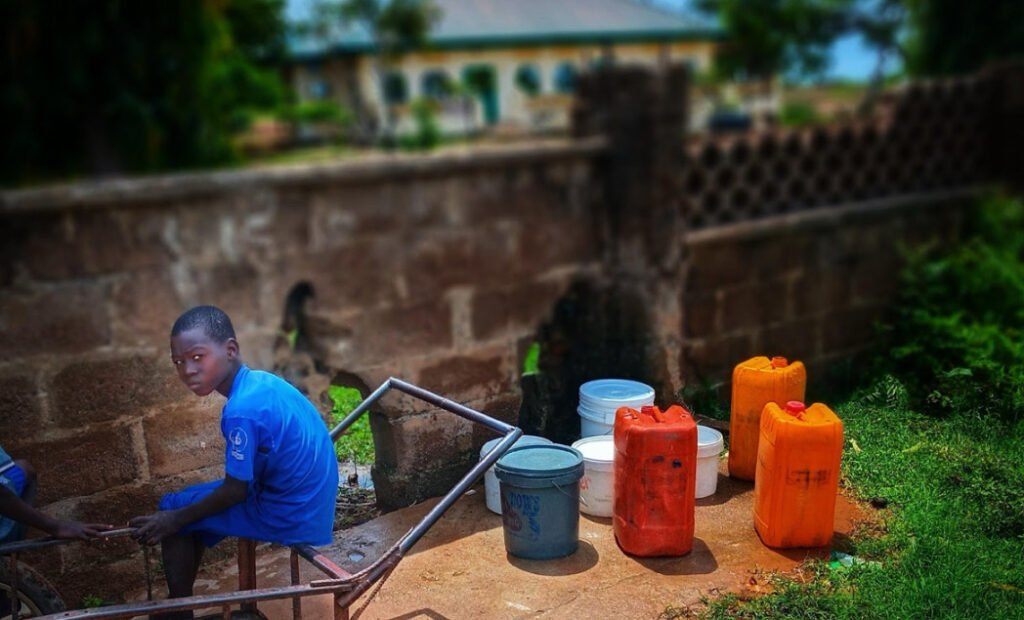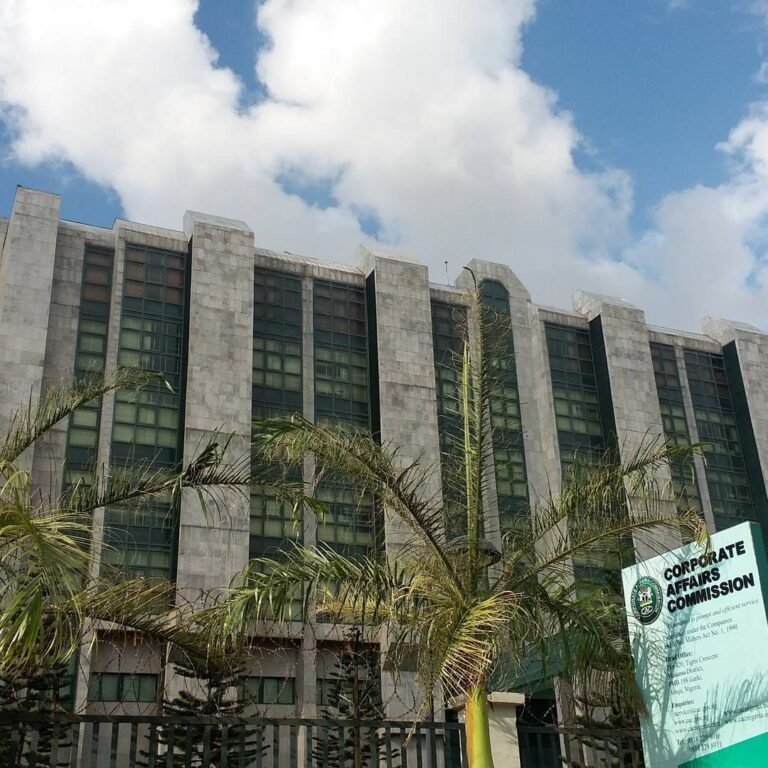Every morning, in Badirisa, a community in Girei Local Government Area of Adamawa state, 40-year-old Aminat Danjuma and her three children are at their neighbours’ houses, knocking on their doors for water. They are barefoot on cracked earth with empty plastic jerrycans clutched on wheelbarrows. In this place, mothers carry the water crisis on their backs. With their children, they always set out before dawn.
“We have been here for 15 years and we don’t have any means of getting water,” says Aminat. “We only knock on neighbours to fetch water from their boreholes.” Sometimes neighbours will open their door for a few hours from about 8 am until midday to let people fetch water, but after that, they won’t give us water again until the next day.”
Repeating the same cycle, Aminat and her children trudge back and forth, filling five to six 25-litre jerrycans at a time. By the end of the day, they end up making dozens of trips just to get enough water to drink and cook.
“It’s very stressful. I’m old, my children and I go together, three or four times before we have enough.”
Badirisa is a community of a few hundred households in Girei local government in Adamawa state. It is known to be one of the state’s least developed communities. The community sits far from the main road, with no central public boreholes. Residents rely solely on a handful of private boreholes and a nearby car-wash tap.
For residents like Aminat and other mothers, fetching water means begging at neighbours’ taps, going to an overcrowded car wash, or trekking miles to distant boreholes. Not a single public borehole serves Badirisa at all. For Badirisa’s women and children, their lives revolve around water: waking up before dawn, walking miles with heavy jerrycans and still having barely enough for one day’s needs.
“If the government will come and help us make a public borehole, we’ll be happy,” Aminat says. “All we can do for now is pray someone hears our cry.”
A pandemic in the North
Across Nigeria and especially in the arid north, millions of people face similar daily battles for water. According to the latest WHO/UNICEF data, only 71 percent of Nigerians have access to “improved” drinking sources, leaving nearly one-third of the country relying on unprotected wells, surface water or water delivered informally.
In rural northern states, that percentage is often much lower. In practical terms, hundreds of thousands of children, farmers and elders routinely make arduous treks for water that should be at their doorstep. To complement WHO’s data, a recent UN report notes that the lack of safe water has contributed to repeated cholera outbreaks and a heavy burden of child diarrhoeal illnesses in Nigeria.
No Water, No Food
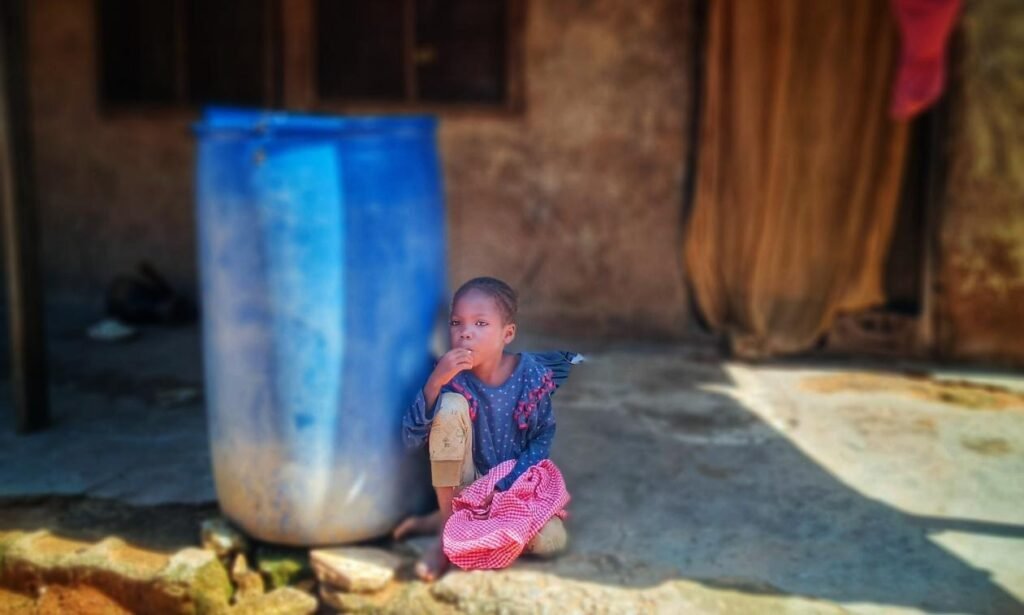
Aminat’s neighbour, Mariam Yusuf, also recounts walking for hours each day to fetch water for her family of three. “We’ve been here for nine years and still counting,” Mariam says.
“We used to go to Gotel (about 20 kilometres away). It’s very far and stressful. Our children are very small, so we have no choice but to go together.”
Every 6 a.m., Mariam would rise with her children, each clutching a jerry-can. They would trek several kilometres looking for the nearest borehole, usually outside a neighbouring street or community, hoping it had water. More than once, Mariam had to abandon cooking or bathing plans because the tap was dry.
“If we want to cook and there’s no water, we just leave it. One day we will get it,” says Yusuf.
Like Aminat and other members of the Badirisa community, Mariam has repeatedly appealed for government intervention. She recalls that officials once visited Badirisa, noted the need, and promised solar-powered boreholes. But they never returned.
Children Know No Better Life
Emmanuel Sunday has been fetching water and carrying a water bowl since he was five. Every morning before school at 6 a.m., he joins the rest of his small group of children trekking miles across streets and roads, balancing jerry cans on their wheelbarrows. After school, he returns with his group for another batch.
“Two weeks ago, I felt a knock on my head. I could not feel anything,” he says. He explained he was dizzy, so weak he had to stay home, but miraculously, he pulled through and became well again. Emmanuel said he would feel happy if the government comes today and constructs new boreholes around his area.
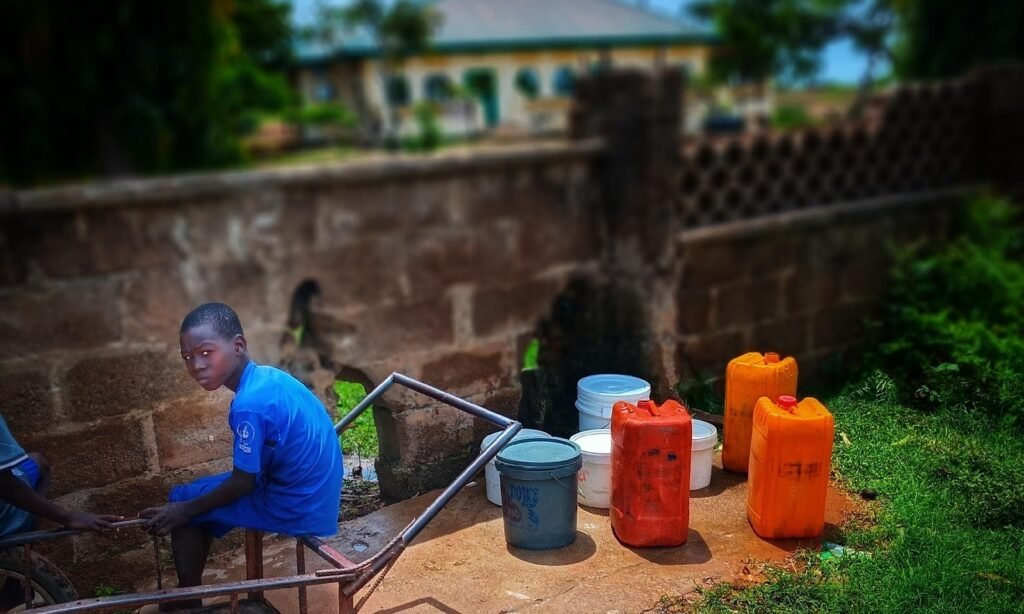
Each year, the cycle continues in Badirisa: the lack of public boreholes, children missing school and mothers begging for water. Yet accountability is questioned. Azizi Yoila, the Councillor for Damare ward (Badirisa included), admits the crisis but says solutions have stalled. He confirms that nearly all community water points are dead.
“Eighty percent of the boreholes in my ward are not working, both hand pump and industrial boreholes,” he says frankly.
Since he came into office, Yoila claimed he has used his salary and funds to repair over 13 hand-pump wells by spending the equivalent of thousands of naira. But beyond those he could not personally fix by himself, he says he forwarded the problem up the chain, appealing to the higher authorities, and he had secured promises of action. He further stated that the local government chairman, Adamu Umar Dallatu, has promised to provide one industrial solar-powered borehole for Badirisa F, a nearby hamlet, and to revive four more pumps in the area.
“We’ve been left behind for too long, but the chairman has given us his word; now we must hold him to it. I have written letters to the local government council and the Ministry of Works, but we are still waiting for their action,” he added.
But Councillor Yoila’s efforts have not eased the scarcity in Badirisa. Even when officials travelled there with cameras, Aminat says, nothing materialises.
“They only came, snapped pictures, and made promises. But we’ve never seen anything,” she explains.
When this journalist met with the Girei local government chairman, Adamu Umar Dallatu, he denied a report from the councillor on Badirisa’s scarcity of public boreholes being tendered to him. The chairman argued that he was not aware of such situation and insisted the journalist should meet the councillor again. However, Councillor Yoila chose not to speak further as he leaves all other inquiries to his chairman.
The LGA chairman further stated that if, by any chance, such a report was tendered to him, he would not have divulged any of his plans to this journalist on the basis of political reasons.
“I won’t tell you my plans. For political reasons, I can’t tell you my secrets because you’re a journalist,” says the LGA chairman.
The Empty Office
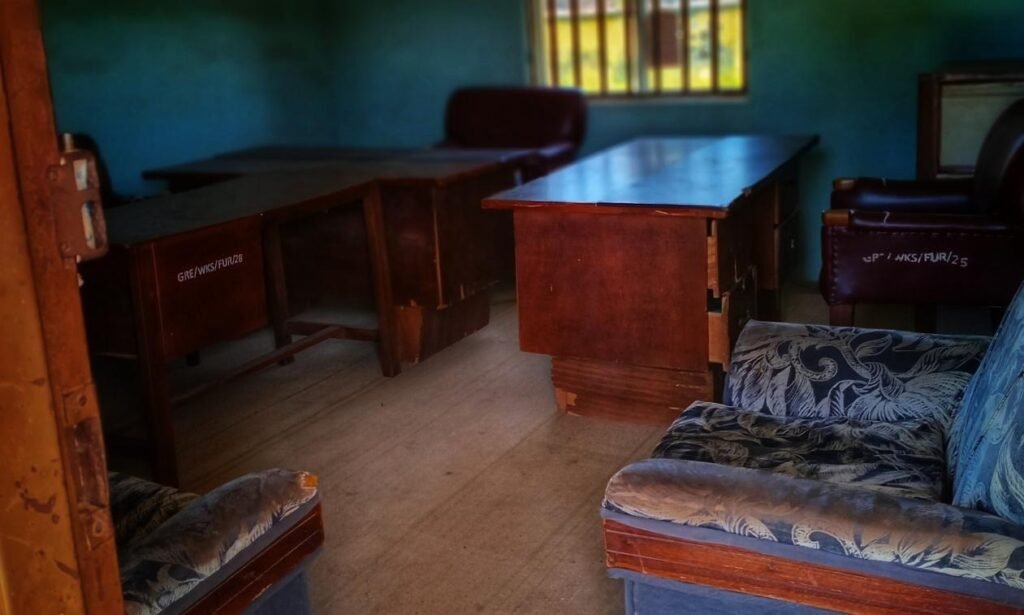
While efforts to get information from the LGA chairman were futile, the local Water Board for Girei local government, on the other hand, has also long been failing in its duties to this corner of the state. After several visits on three different occasions to the Works Department of Water Board at the Girei local government secretariat, unfortunately, the visits yielded no results. The offices look stuffy and empty with no officer present, just occupied by empty chairs and tables. The journalist later learnt that the staff of the department only come to the office occasionally, most likely when a new director is appointed.
“The last time the senior officers were in the office was about two months ago,” someone in the area told the journalist.
This level of unaccountability raises questions about leadership roles and responsible leadership. It shows a high level of leadership failure in public offices. But the failures here cut deeper. In May 2024, after widespread complaints across federal, state, and local levels, Adamawa legislators themselves decried the sector’s underfunding.
The Cost
The human cost of this neglect is enormous. Health problems are not far behind this kind of life in Badirisa. When a population like the Badirisa community struggles with one barely functioning borehole or a long queue at a polluted carwash, it is certain to be a hotspot for unreliable water-borne disease. UNICEF notes that contaminated drinking water fuels a disproportionate share of Nigeria’s diarrhoeal illness.
“Sometimes we have illnesses from the water. My children have had headaches and stomach pains. We know we’re lucky we can avoid typhoid or cholera by boiling what little we get, but we also know it’s only a matter of time.” Mariam adds.
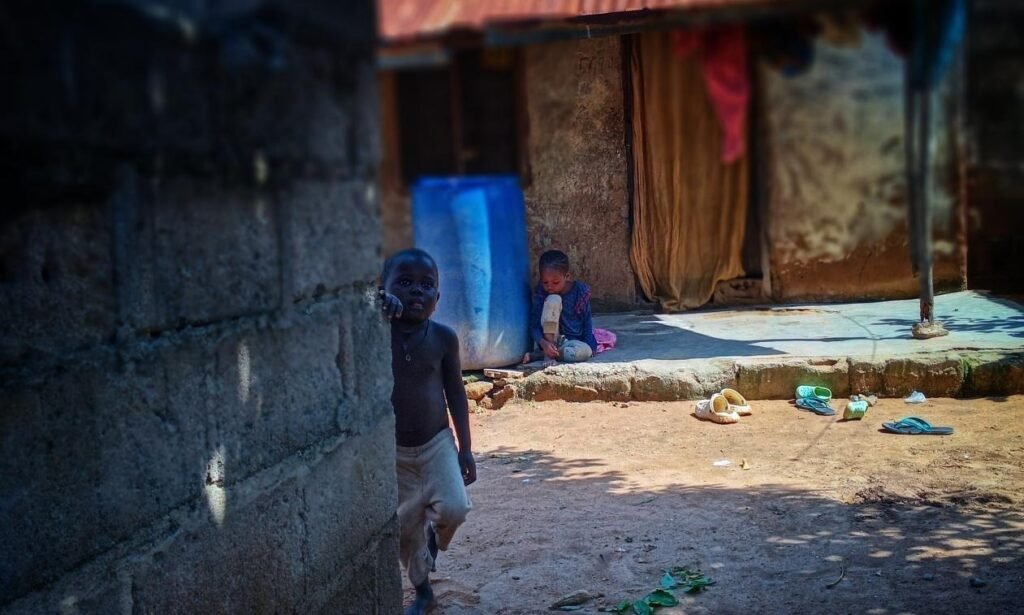
Adamawa has seen repeated cholera flare‑ups. A 2024 cholera rapid‑response report shows that Adamawa declared an outbreak in September 2024 and, by October, had 910 suspected cases and 19 deaths. Contaminated water is traced as the main driver of these outbreaks.
UNICEF confirms that contaminated water causes over 70,000 child deaths in Nigeria each year. Waterborne illnesses like cholera and typhoid are already a threat in this community. The community reports their children are already suffering from headaches and stomach pains from the water, and rescheduling baths or meals when taps run dry.

